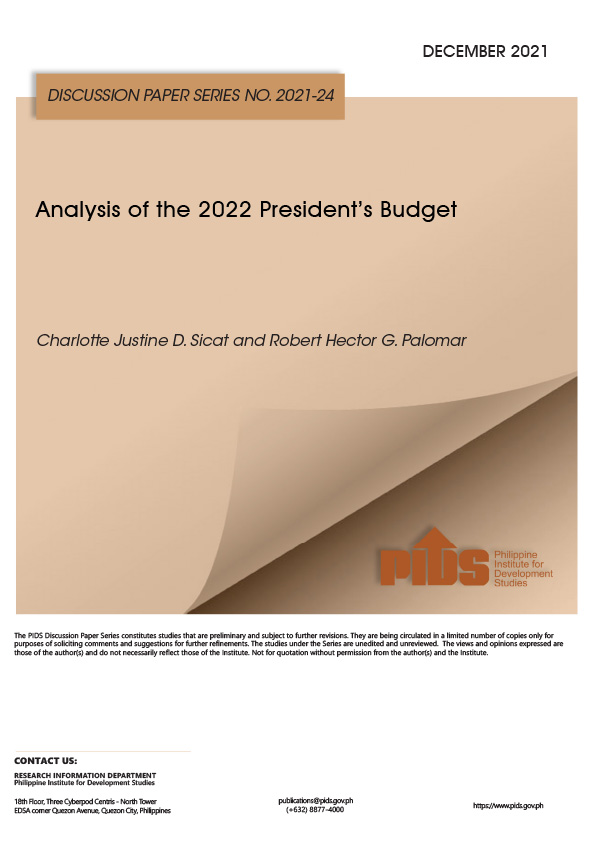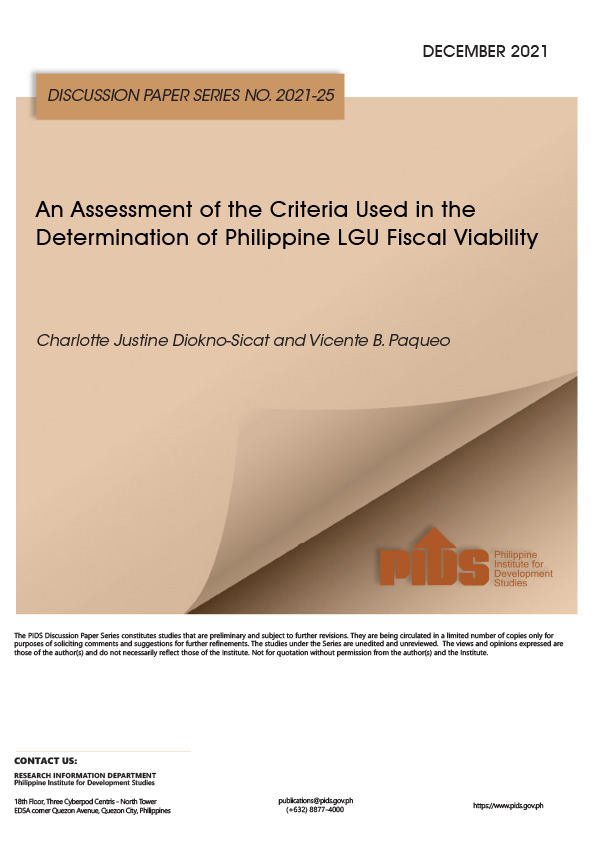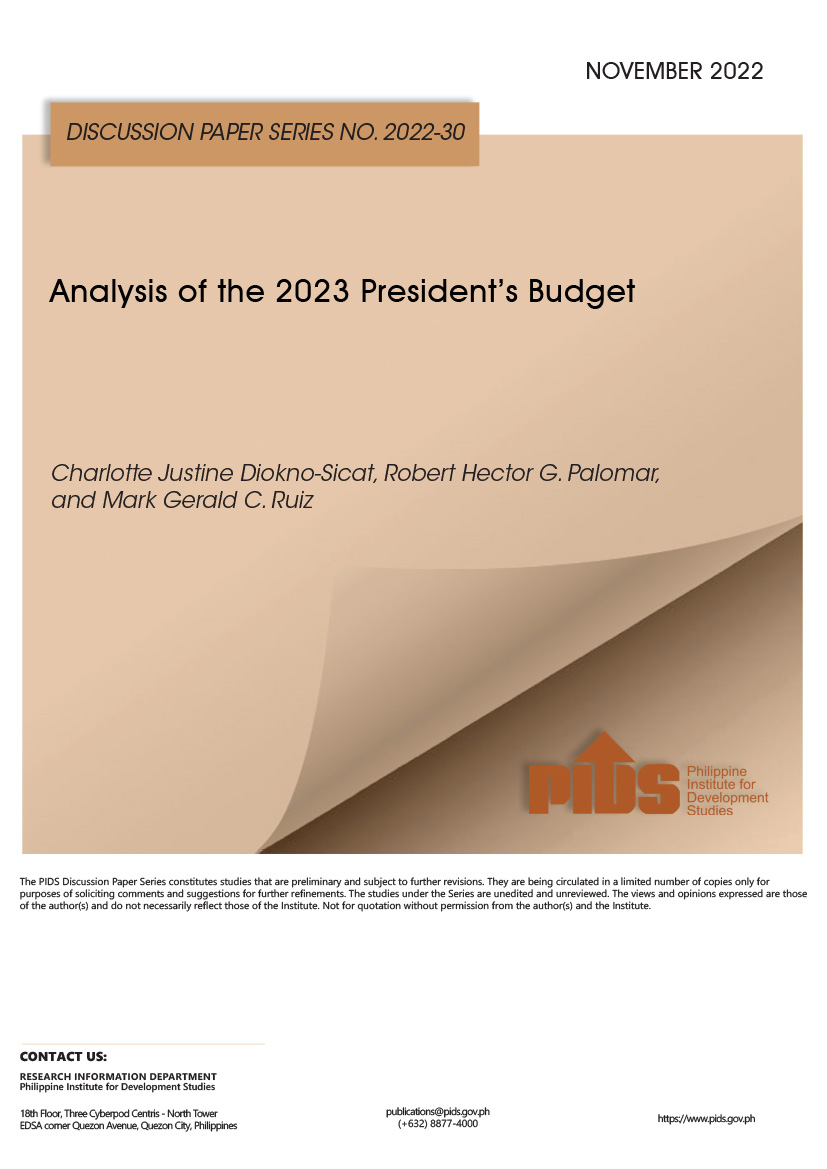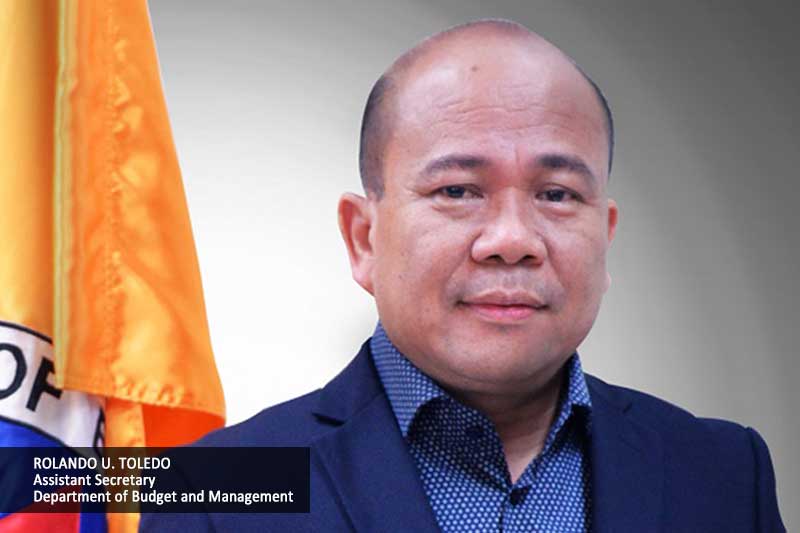
The government may cut back on or “unfund” some of the programs, activities and projects (PAPs) in the budgets of some national government agencies (NGAs) to allow it to allocate funds for the increase in the internal revenue allotment (IRA) of local government units (LGUs).
This is one of the options recommended by a study published by the Philippine Institute for Development Studies (PIDS) following the decision of the Supreme Court to expand the source of IRA to include other national taxes such as customs duties. Based on the estimates of the Development Budget Coordinating Committee (DBCC), the IRA in 2022 is projected to increase “from PHP 847.4 billion (if the old way of computing the IRA were followed) to PHP 1,102.7 billion or an increment of PHP 225.3 billion”.
In July 2019, the Supreme Court ruled in favor of the petitions filed separately by Governor Hermilando Mandanas of Batangas and the late Representative Enrique Garcia Jr. of Bataan questioning the computation of the IRA.
The author, former PIDS Senior Research Fellow Rosario Manasan, presented the findings and recommendations of the study “Fiscal Sustainability, Equity, and Allocative Efficiency in the Light of the 2019 Supreme Court Ruling on the LGUs’ Share in National Taxes” during a recent webinar organized by PIDS. The study provided three options for the government to be able to source out PHP 1,102.7 billion for the LGUs’ IRA share in 2022.
The first option is for the government to increase tax rates or impose new taxes to generate additional government revenue equivalent to 0.9 percent of gross domestic product (GDP) in 2022 over and above incremental revenues from tax reforms intended to fund the ‘Build, Build, Build’ program.
The second option is for the government to increase its fiscal deficit target by 0.9 percent of the GDP yearly. While this is likely to be fiscally sustainable in the short term, Manasan cautioned that implementing a more expansionary fiscal stance in the long term will be risky from a fiscal sustainability perspective.
The third is to “unfund” some PAPs that are budgeted under the General Appropriations Act (GAA) to create fiscal space for the increase in IRA. These PAPs pertain to devolved functions that are still being carried out by some NGAs.
According to Manasan, the third option is perhaps “the most prudent from a fiscal point of view”. In selecting programs to be unfunded, she underscored that it is important to choose PAPs that are included in the budget of some NGAs yet are assigned to LGUs under Section 17 of the Local Government Code of 1991.
Manasan said that the unfunding of PAPs in the 2020 GAA will give the national government a total appropriation of PHP 247.6 billion, which is higher than the projected increase of the DBCC at PHP 225.3 billion. As a result, there is an excess of PHP 22.3 billion in the amount required to fund the increase of the IRA.
She recommended that the excess funds be used for equalization transfers for re-devolved PAPs and government counterpart in matching grants to address the fiscal imbalances across individual LGUs within each level of local government.
With the increase of their IRA, LGUs are expected to finance more programs and projects, which means bigger responsibilities for them.
Hence, Department of the Interior and Local Government-Bureau of Local Government Development Director Anna Liza Bonagua, who is one of the discussants in the webinar, stressed the need to prepare LGUs and upgrade their capacities so they can carry out more tasks and initiatives in the coming years.
“The assumption is that since they will be receiving some amount, there will be additional functions that the national agency has been performing before that will be re-devolved to them so there has to be capacity building to carry out those activities,” Bonagua said.
Meanwhile, Governor Hermilando Mandanas, who is also a discussant in the webinar and the lead petitioner in the case, said that “the people in the local government just have to really study, work, and comply with the basic demands of their job. Also, they should have a sense of responsibility and practice all the virtues required.” ###
This is one of the options recommended by a study published by the Philippine Institute for Development Studies (PIDS) following the decision of the Supreme Court to expand the source of IRA to include other national taxes such as customs duties. Based on the estimates of the Development Budget Coordinating Committee (DBCC), the IRA in 2022 is projected to increase “from PHP 847.4 billion (if the old way of computing the IRA were followed) to PHP 1,102.7 billion or an increment of PHP 225.3 billion”.
In July 2019, the Supreme Court ruled in favor of the petitions filed separately by Governor Hermilando Mandanas of Batangas and the late Representative Enrique Garcia Jr. of Bataan questioning the computation of the IRA.
The author, former PIDS Senior Research Fellow Rosario Manasan, presented the findings and recommendations of the study “Fiscal Sustainability, Equity, and Allocative Efficiency in the Light of the 2019 Supreme Court Ruling on the LGUs’ Share in National Taxes” during a recent webinar organized by PIDS. The study provided three options for the government to be able to source out PHP 1,102.7 billion for the LGUs’ IRA share in 2022.
The first option is for the government to increase tax rates or impose new taxes to generate additional government revenue equivalent to 0.9 percent of gross domestic product (GDP) in 2022 over and above incremental revenues from tax reforms intended to fund the ‘Build, Build, Build’ program.
The second option is for the government to increase its fiscal deficit target by 0.9 percent of the GDP yearly. While this is likely to be fiscally sustainable in the short term, Manasan cautioned that implementing a more expansionary fiscal stance in the long term will be risky from a fiscal sustainability perspective.
The third is to “unfund” some PAPs that are budgeted under the General Appropriations Act (GAA) to create fiscal space for the increase in IRA. These PAPs pertain to devolved functions that are still being carried out by some NGAs.
According to Manasan, the third option is perhaps “the most prudent from a fiscal point of view”. In selecting programs to be unfunded, she underscored that it is important to choose PAPs that are included in the budget of some NGAs yet are assigned to LGUs under Section 17 of the Local Government Code of 1991.
Manasan said that the unfunding of PAPs in the 2020 GAA will give the national government a total appropriation of PHP 247.6 billion, which is higher than the projected increase of the DBCC at PHP 225.3 billion. As a result, there is an excess of PHP 22.3 billion in the amount required to fund the increase of the IRA.
She recommended that the excess funds be used for equalization transfers for re-devolved PAPs and government counterpart in matching grants to address the fiscal imbalances across individual LGUs within each level of local government.
With the increase of their IRA, LGUs are expected to finance more programs and projects, which means bigger responsibilities for them.
Hence, Department of the Interior and Local Government-Bureau of Local Government Development Director Anna Liza Bonagua, who is one of the discussants in the webinar, stressed the need to prepare LGUs and upgrade their capacities so they can carry out more tasks and initiatives in the coming years.
“The assumption is that since they will be receiving some amount, there will be additional functions that the national agency has been performing before that will be re-devolved to them so there has to be capacity building to carry out those activities,” Bonagua said.
Meanwhile, Governor Hermilando Mandanas, who is also a discussant in the webinar and the lead petitioner in the case, said that “the people in the local government just have to really study, work, and comply with the basic demands of their job. Also, they should have a sense of responsibility and practice all the virtues required.” ###










